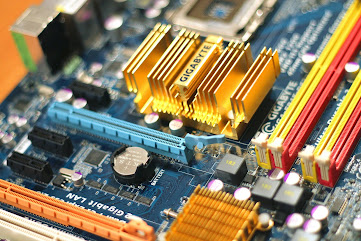Introduction to Electronics
Engineering
Electronics engineering is a branch of engineering that deals with the study and application of electronic circuits and devices. It involves the design, development, testing, and maintenance of electronic systems and components. This field plays a crucial role in our modern society as it contributes to the advancement of technology in various sectors.
With the rapid growth of digitalization and the increasing reliance on electronic devices, electronics engineering has become an essential discipline. It combines principles from physics, mathematics, and computer science to create innovative solutions to complex problems. By understanding the basics of electronics engineering, one can comprehend the functioning of electronic circuits, digital electronics, analog electronics, and semiconductor devices.
Understanding Electronic Circuits
Electronic circuits are the building blocks of
any electronic device, ranging from simple calculators to sophisticated
computer systems. These circuits consist of interconnected electronic
components, such as resistors, capacitors, and transistors, which work together
to perform specific functions. Understanding electronic circuits is fundamental
in electronics engineering as it enables engineers to design, analyze, and troubleshoot
electronic systems effectively.
To comprehend electronic circuits, one must have
knowledge of circuit theory, which includes key concepts like Ohm's law,
Kirchhoff's laws, and circuit analysis methods. Additionally, familiarity with
different circuit components and their behavior is essential. Electronic
circuits can be classified into analog circuits and digital circuits, each
serving unique purposes.
Exploring Digital Electronics
Digital electronics deals with the design and
implementation of digital circuits that use binary signals (0 and 1) to
represent and process information. This field focuses on logic gates,
flip-flops, counters, and other digital components to design systems like
microprocessors, memory units, and digital communication devices. Digital
electronics plays a vital role in fields such as telecommunications, computer
systems, and data processing.
In digital electronics, engineers utilize
Boolean algebra, combinational and sequential logic, and programming languages
like VHDL or Verilog. The ability to understand and manipulate digital signals
allows engineers to create efficient and reliable electronic systems, which are
the backbone of modern technology.
Exploring Analog Electronics
Analog electronics deals with continuous signals
that can have various values within a range. It involves the study of
amplifiers, oscillators, filters, and other analog components to process and
manipulate continuous signals. Analog electronics finds applications in audio
and video systems, power electronics, and sensor interfacing.
Understanding analog electronics requires
knowledge of circuit analysis techniques, such as nodal analysis and mesh
analysis, as well as familiarity with amplification and filtering principles.
Analog engineers work on tasks like designing low-noise amplifiers, voltage
regulators, and high-frequency circuits to ensure accurate signal processing
and transmission.
Importance of Semiconductor
Devices in Electronics Engineering
Semiconductor
devices are at the heart of modern electronics engineering. These devices are
made from semiconductor materials, often silicon, and exhibit unique electrical
properties. They can be classified into two types: diodes and transistors.
Diodes are semiconductor devices that allow the
current to flow in only one direction. They serve various purposes, such as
rectifying AC to DC, voltage regulation, and signal modulation. On the other
hand, transistors are three-terminal devices that amplify or switch electronic
signals. They are the fundamental building blocks of integrated circuits (ICs)
and form the basis of numerous electronic systems, including computers,
smartphones, and telecommunication networks.
In electronics engineering, understanding
semiconductor devices is crucial for designing efficient and reliable
electronic systems. Engineers need to analyze their characteristics,
application limitations, and various transistor configurations. The continuous
advancements in semiconductor technology have revolutionized the electronics industry,
leading to smaller, faster, and more powerful electronic devices.
In conclusion, electronics engineering
encompasses various aspects, including electronic circuits, digital
electronics, analog electronics, and semiconductor devices. The field plays a
vital role in advancing technology and shaping our modern society.
Understanding the basics of electronics engineering is crucial as it enables
engineers to design, develop, and maintain electronic systems that drive
innovation in various sectors.







